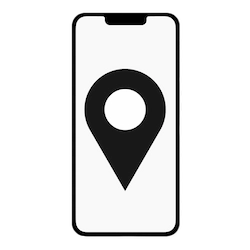What is a Good Settlement Offer for a Car Accident?
Navigating the Complex Terrain of Accident Compensation
Car accidents are distressing, and the aftermath can be a convoluted mix of medical bills, car repairs, and insurance negotiations. Obtaining a fair settlement is crucial for those injured or facing significant property damage. But how does one determine what a reasonable settlement offer is? Let’s delve deep into understanding the factors and considerations for evaluating a car accident settlement.

What is a Settlement?
In the context of a car accident, a settlement is an agreement between the injured party and the at-fault party’s insurance company. Rather than going to court, both sides agree to a specific amount of compensation to cover medical expenses, property damage, lost wages, and other related costs.
Key Components of a Car Accident Settlement
Medical Bills: These are often the most substantial part of any settlement. It includes past, current, and projected future medical expenses related to the accident.
Lost Wages: If the accident resulted in the victim missing work or losing their job, they could be compensated for these lost earnings.
Pain and Suffering: A more abstract component, this factors in the physical pain and mental anguish a victim might experience post-accident.
Property Damage: Typically covers repair or replacement costs for any vehicles or personal items damaged in the crash.
Loss of Consortium: In some cases, additional compensation may be deemed necessary if the injury negatively impacts the victim’s relationship with their spouse or family.
Factors Affecting the Value of a Settlement
Severity of Injuries: A minor injury might result in a smaller settlement than a severe or permanent one, such as paralysis or significant disfigurement.
Degree of Fault: In many states, the amount you can recover might be reduced if you were partially at fault for the accident.
Quality of Documentation: The more evidence you have supporting your claim—medical records, photos of injuries or damages, witness statements—the more robust your position in negotiations.
Policy Limits: The at-fault driver’s insurance policy limits will also play a role. If their policy only covers a certain amount, recovering more than that limit may be challenging without directly suing the individual.
Determining if an Offer is Fair
Calculating all current and potential future expenses resulting from the accident is essential. This will give you a baseline to evaluate any offers. Here are steps to assist in that:
Engage a Personal Injury Attorney: Their expertise will help you understand your claim’s nuances and provide a clear picture of what a fair settlement might look like.
Use a Settlement Calculator: While not foolproof, many online calculators provide a ballpark figure for settlements based on inputs like medical expenses and severity of injuries.
Consider Future Implications: If an injury might cause long-term health issues or require ongoing therapy or treatment, it’s vital to factor those future costs into settlement considerations.
Negotiating the Settlement
Insurance companies are in the business of making money, and their initial offers might be on the lower side. Here’s a guideline for navigating these negotiations:
Do Not Accept the First Offer: It’s standard practice for insurance adjusters to start with a low offer to gauge if you understand your claim’s worth.
Present a Counteroffer: Based on your calculations and desired settlement amount, present a counteroffer with a clear breakdown of your expenses and justifications.
Stay Patient: Negotiations might be drawn out, but staying patient and persistent can often lead to a better settlement.
When to Consider Legal Action
If negotiations break down or if the insurance company’s offer remains unreasonably low, it might be time to consider filing a lawsuit. Your attorney can guide this course of action’s feasibility and potential outcomes.
Conclusion
Determining a reasonable settlement offer for a car accident involves carefully considering current and future expenses, an understanding of insurance policy limits, and a readiness to negotiate. While every situation is unique, arming oneself with knowledge and possibly legal representation can ensure that one’s interests are adequately protected and compensated. After all, a car accident’s repercussions can be life-altering, and securing a fair settlement is a step toward restoring normalcy.
